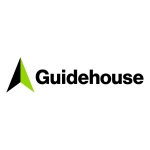Combating Fraud Remains Key Priority for Financial Institutions, But Questions Persist About Prevention and Mitigation

New survey from Guidehouse argues for better risk assessments and use of technology in fraud prevention
WASHINGTON–(BUSINESS WIRE)–Guidehouse, a leading consultancy and solutions provider to the public and commercial sectors, today announced the results of a new survey of financial services executives responsible for fraud prevention and mitigation. The vast majority of those surveyed have grown more concerned about fraud during the COVID-19 pandemic, with regional and community banks and credit unions reporting concerns at a higher rate (95%) than national banks (73%) or broker-dealers (72%).
The findings of the survey, conducted in partnership with Arizent Research/American Banker, highlight the need for periodic risk assessments, ongoing education for employees and customers, better use of technology solutions, and a holistic, enterprise-wide framework to combat increasingly creative criminals. Over a quarter (27%) of executives report that a lack of comprehensive mitigation framework is a major challenge for their institution and hinders their efforts to assess or prioritize key fraud risks. Equally concerning, 47% of executives note that they lack a fraud control framework integrated across all functions of their institution.
Efforts to combat fraud also depend on staying ahead of criminals who are more proficient at using technology, work-from-home conditions and evolving regulations to their advantage. Guidehouse found that only 44% of executives agree completely that the results of fraud risk assessments are systematically communicated to relevant businesses to inform decision-making. Similarly, only 39% of executives agree completely that they have a formal fraud prevention education program rolled out to customers.
“While many financial institutions have robust fraud prevention programs at a particular point in time, this may not translate in their ability to prevent the everchanging financial crime schemes,” noted Ellen Zimiles, partner and leader of the Financial Services segment at Guidehouse. “With so many customers migrating from traditional to digital banking channels because of the pandemic, this has dramatically increased opportunities for cyber fraud. Our survey and discussions with leaders of financial institutions underscores just how critical it is to have a nimble, best-in-class fraud prevention program in place to protect your institution’s reputation and bottom line.”
Community Institutions Most at Risk
Institutions that operate chiefly at a regional or local level appear to be particularly vulnerable to fraud. As noted above, institutions which may not have the resources or mature fraud-prevention frameworks are prime targets for wrongdoers; identity theft (63%) and security breaches (54%) are top-of-mind for all executives, but can be much more damaging with institutions managing fewer assets or devoting fewer resources to compliance and fraud mitigation.
“The last year has illustrated just how important financial institutions are to their customers and communities through their administration of relief benefits, small business loans and unemployment payments,” added Sandra Desautels, partner in the Global Investigations and Compliance practice at Guidehouse. “Significant fraud or other criminal attacks against community institutions can have ruinous effects for customers, employees, executives and shareholders alike – heightening the importance of staying ahead of any areas of weakness when it comes to fraud controls.”
Technology Holds the Key to Fraud Prevention – If Used Strategically
Even as new tools such as artificial intelligence, machine learning and data analytics allow institutions to monitor potentially fraudulent activity, survey respondents reported an imbalance between the availability of technology and its usefulness. 39% of respondents cited ineffective technology as a key impediment to fighting fraud, and nearly half (53%) report leveraging big data analysis to combat fraud.
“We know from experience that technology can be an invaluable resource in combating crime in financial services, but only if institutions integrate it into a broader risk framework and commit to using it effectively,” said Salvatore LaScala, partner and head of the Global Investigations & Compliance Practice at Guidehouse. “Fraud mitigation isn’t a one-size-fits-all effort. Each institution needs to determine which technology solution is right for their needs, how it fits into their broader enterprise technology suite and what fraud mitigation issue it is intended to solve.”
Executives reporting themselves as proactive on fraud mitigation reported better outcomes than companies with a more reactive posture, including increased customer retention, improved profitability, higher customer satisfaction and fewer fraudulent transactions. To learn more about the results and how Guidehouse can help with fraud prevention efforts, please visit guidehouse.com/fraud.
Survey Methodology
The online survey was conducted by Arizent Research/American Banker in February 2021 among 102 respondents that work at financial institutions or technology providers. Qualified respondents are employed in manager level–plus roles and have at least a moderate level of responsibility or oversight into fraud prevention/mitigation at their organization.
About Guidehouse
Guidehouse is a leading global provider of consulting services to the public and commercial markets with broad capabilities in management, technology, and risk consulting. We help clients address their toughest challenges and navigate significant regulatory pressures with a focus on transformational change, business resiliency, and technology-driven innovation. Across a range of advisory, consulting, outsourcing, and digital services, we create scalable, innovative solutions that prepare our clients for future growth and success. The company has more than 10,000 professionals in over 50 locations globally. Guidehouse is a Veritas Capital portfolio company, led by seasoned professionals with proven and diverse expertise in traditional and emerging technologies, markets, and agenda-setting issues driving economies around the world. For more information, please visit: www.guidehouse.com.
Contacts
Brian Karp, Guidehouse
Brian.karp@guidehouse.com
646-227-4991
Ryan Dicovitsky, Dukas Linden Public Relations
Ryan@DLPR.com
908-907-7703
